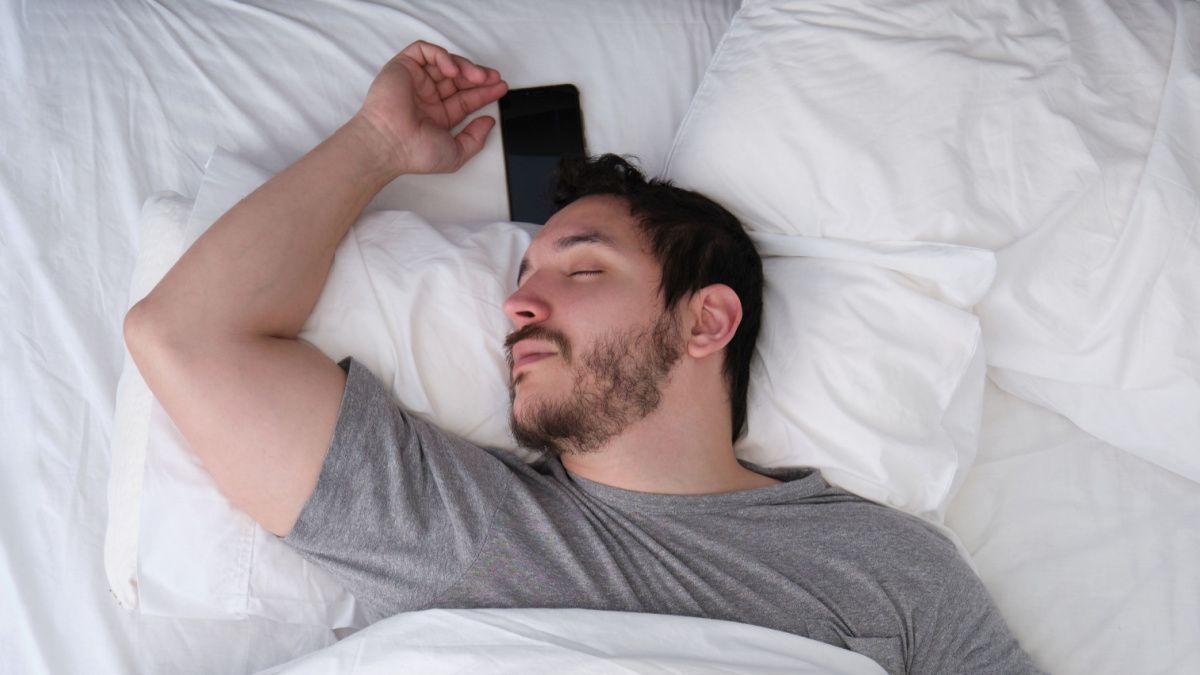Many people use their phone until the moment of falling asleep, then it's literally in bed with them---or charging nearby---all night. Using your phone before bed is already not great, but is the close proximity bad too?
Researchers agree that using a phone before bedtime can cause poor-quality sleep. However, what about when we're finally asleep? Does having the phone nearby subliminally affect us? And are there any health risks associated with sleeping near a mini computer every night?
How Your Phone Makes Your Sleep Worse
First, let's talk about the effects of having a phone nearby on sleep. As mentioned, it's generally agreed that using a phone before bed is not good. The bright screen and endless stimulus disrupt our sleep cycles and prevent our brain from "shutting off."
These are the same concerns with having a phone nearby while you're actually sleeping. Most people wake up a few times throughout the night. It can be tempting to grab your phone in those times when you're struggling to fall back asleep.
A blast of bright light in your eyes and a "quick" scroll through Instagram is not going to help you fall back asleep. It's signaling to your brain and body that sleep time is over, and that's the exact opposite of what you want. Putting your phone out of arms reach can help curb this temptation.
Are There Other Health Risks?
What about the health risks of sleeping next to your phone? People have been worried about electronics emitting radiation for a long time. Is there any truth to those concerns?
Smartphones are able to communicate by transmitting radio waves through a network of antennas. These radio waves---also called radiofrequency waves---are electromagnetic fields. Unlike the radiation you're probably familiar with---like from x-rays---electromagnetic fields cannot break chemical bonds nor cause ionization in the body.
In 2014, the International Agency for Research on Cancer (IARC) classified electromagnetic fields from smartphones as "possibly carcinogenic to humans." However, the organization has found no increased risk of head or neck cancers with smartphone use of more than 10 years. Other studies have had similar results, though the American Cancer Society points out it's a hard thing to study.
The results of a more recent study were published in 2018 by the US National Toxicology Program (NTP). They found an increased risk of uncommon heart tumors in male rats, but not in female rats or male or female mice. The NTP study also reported possible increased risks of certain types of tumors in the brain and in the adrenal glands.
However, a review of this study determined that it didn't allow conclusions to be drawn regarding the ability of radiofrequency energy to cause cancer. The NTP does not include radiofrequency radiation in its list of carcinogenic exposures.
Unfortunately, we don't have a clear-cut answer for the effects of sleeping next to a smartphone. Plus, most of us are not only near our phones in bed. You probably have one in your pocket or your hands right this moment. Any health risks that would come with sleeping near your phone would also most likely apply to your daily life.
What we do know is that exposure to the electromagnetic fields significantly drops off as you get further away from the device. You're probably near your phone all day, so why not give it some space at night? There's really no reason to sleep with your phone next to you in bed, and you might be wasting time with sleep trackers, too.

